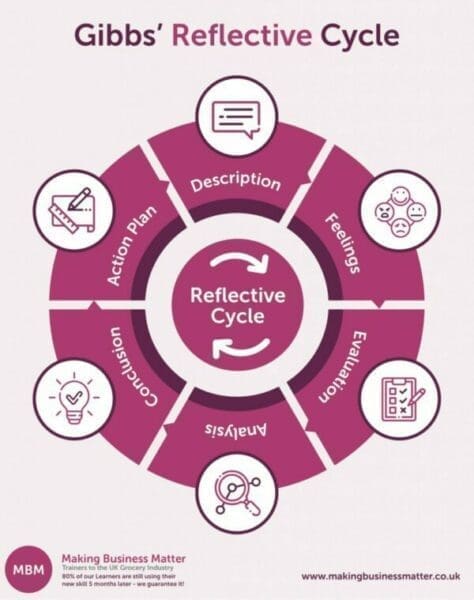A Word in Your Shell-Like
Small talk is an important part of human behaviour that many business people actively dislike. They see casual chat as a waste of time unless it’s about work. But there’s no escaping it, small talk is a seriously undervalued soft skill. To engage customers, you must build rapport. And as offices reopen, you need to reboot employee connections. Casual conversation, backed by active listening, is essential for both.
This article addresses making small talk your superpower and enhancing your business life. As we explain, it’s the same whether you’re networking, schmoozing prospects, working round to asking for the order, or teambuilding. Small talk confirms you value the other person. It makes them feel good. And it boosts their self-esteem.
Crucially for the bottom line, small talk also provides the icebreaker clearing the way to the sale. And finally, maybe you’re not naturally ‘Front of House’ but you want to nail this stuff? Catch our ‘sales small talk for introverts’ section at the end. Enjoy!
Spread the Word: Small Talk is Hugely Important!
So What Exactly is Small Talk?
Small talk is light, informal conversation. We do it when we’re talking to people we don’t know as part of networking. Other important times are with colleagues we see every day and others we interact with through work. And we should really do it more. Even saying no to sales people and job applicants, it’s important to build up their humanity.
Is Small Talk Good or Bad?
There’s the potential to go either way! Small talk often precedes bigger talk. Most of us like to feel comfortable before we start serious conversations or ongoing cooperation. It’s about emotional connection. If you avoid small talk, you risk cutting yourself off from the chance of meaningful social interaction. Connection is one of our fundamental human needs. Don’t underestimate it.
If you’re into the psychological aspects, think of small talk as social bonding. The experts say small talk is also important in managing our stress levels. How does that make you feel?!
Sticky Learning ® is 7 times more effective than 1-day training courses. Plus, you will get a Chain of Evidence proving your Return on Investment. Discover soft skills training that changes behaviours long term.

Excuse Me, That’s Sexist

Small talk is crucial in establishing and maintaining relationships. A key factor is, it involves emotional intelligence. This makes it different from task-oriented or informational speech, which concerns short term tasks and requirements. Incidentally, old school male bosses were generally more dismissive of non-task related speech than women bosses.
Thankfully, we’ve moved on. These days bosses of both sexes increasingly recognise that emotional intelligence and listening skills are important. And so is small talk, boosting people’s wellbeing through social contact.
There’s still gender inequality. And white male privilege and toxic masculinity. But small talk can do a great deal to help create a sympathetic working atmosphere. In times gone by, working women used small talk as a defence against oppressive male bosses. Because of their upbringing, women’s social skills and emotional intelligence are (generally) more developed than men’s.
Working women relied on these abilities to hold their own. But it wasn’t always conflict. Bring different genders together at work and there’s bound to be attraction. And that leads us to flirting, another significant aspect of workplace small talk.
Is Office Small Talk Flirting?
It can be. Or, these days it can be seen as sexual harassment. Be self-aware. Keep your boundaries in place, so you stay in control and comfortable. And be measured in your response. Reaching out to people around us is a key part of working with others. Workplace chats can keep us grounded and calm when things are difficult.
Connecting with colleagues gives you more reasons to care about what you are doing, and where you do it. But if someone’s flirting with you and it doesn’t feel right, be firm. People will respect you. And if you’re still not comfortable, ask colleagues for advice.
So What’s the Difference Between Small Talk and Conversation?
Small talk is polite conversation about unimportant or uncontroversial matters. Big talk is deep, meaningful, or otherwise emotive conversation about important issues. Such exchanges also help you get to know the other person better. Small talk has its place: ideally any conversation is a fluid mix of the two, all participants actively listening. It’s your call!
Count on Me: Small Talk By Numbers

3 Topics You Should Never Talk About (and the Rest!)
People used to say you should never talk about religion, sex or politics in polite society. This was because we have a wide variety of emotionally conditioned opinions and it might cause offence. These days, there’s more diversity in society. But at the same time, there’s also less tolerance of things that are potentially triggering.
So it’s wise advice to steer clear of all the topics in the Diversity & Inclusivity list. Or at least, wait until you know your colleagues well enough for informed conversations. And even then it’s still advisable to tone down such conversations, especially with others around. This is an area where bosses and leaders need to set an example. Uncontrolled, insensitive small talk can escalate into big talk and become divisive.
4 Steps to Small Talk Success
- Ask open ended questions.
- Practise active listening. Pay attention to the other person, watch their body language, and don’t tune out! Stay focused: ask relevant questions and remember details for later in the chat.
- Put away your phone. People won’t want to come near you if they see you scrolling!
- Show some enthusiasm. Small talk might not always be stress-free. But go in with the right attitude and it can be exciting. You never know what the other person might want to share, so it could be a great conversation.
6 Subjects for Small talk
- Your location.
- How you got there. Especially if it’s been a while since you were last wherever you’re talking now!
- How’s your day been so far?
- How have you been feeling?
- How has the other person been?
- What’s happening in sport, music, films, TV, Netflix and the rest (because we’re human).
8 Tips to Start Small Talk
- Introduce yourself.
- Ask the other person for information.
- Pay them a compliment.
- Comment on something pleasant.
- Offer help.
- Mention a shared experience.
- Praise the person.
- Ask about them.
9 Tips to Master the Art of Small Talk
Temperament is important. Here are some painless tips for introverts trying to get to grips with all this:
- Reduce anxiety: introverts are inclined to approach small talk with reluctance. This can vary from slight apprehension to crippling dread.
- Be purposeful.
- Channel your curiosity.
- Ask questions.
- Add juicy titbits.
- Deepen the conversation.
- Recognise cues: How interested is the other person in what you’re saying?
- Be kind to yourself.
- Keep a journal of your conversations and what happened, like in the Gibbs Reflective Model.

Hopefully, this is helpful. There’s more about small talk for introverts in sales at the end.
10 Big Rules of Small Talk
- Do your homework on the people there beforehand.
- Greet people appropriately.
- Remember names.
- Don’t hold back.
- Draw the other person out.
- When in doubt, discuss where you are.
- Revive dying conversations, don’t leave them.
- Make proper introductions.
- Diffuse unpleasant situations.
- Make a clean getaway.
What’s a Good Small Talk Strategy?
Talking to strangers can be nerve-racking for most people, even if they’re otherwise fairly confident individuals. The best thing to do is ask questions and keep the other person talking. Questions can be pretty well anything it takes to keep the conversation going and let you both feel comfortable. And then once they’ve finished talking, ask follow-up questions.
Opt for topics common to both of you. React to comments in the spirit they were given. If the other person makes a joke, laugh. And if they offer a particularly interesting detail or anecdote, show your appreciation.
Finally, if the conversation’s flagging, find a non-awkward way to close it down. That’s so next time you talk, they’ll remember you’ve met. But they won’t remember you being rude.
Is Small Talk Meaningful?
Making small talk can feel meaningless. But that doesn’t mean it actually is. Small talk is a way of feeling each other out and exploring whether you want to talk to this person more. Small talk isn’t actually about the topic you’re discussing. It comes down to emotional intelligence!
How to Make Small Talk More Meaningful
- Ask ‘why’ and ‘how’ questions: when you ask ‘why’ questions, you explore a person’s underlying motivation. ‘Why’ questions convey genuine interest in their experience.
- “If you’re not interested, you can’t be interesting”: Explore topics to find common ground. Build on what the other person says.
- Ask for advice. People love to be thought of as knowledgeable.
- Avoid your favourite topic: remember, this is about them, not you.
- Talk less, listen more.
- Obey the 20 second rule: up to 20 seconds, green, go on talking. Next 20 seconds, yellow. Are they still interested? After that, stop!
- Watch your body language.
- Lose the phone.
Make Time to Talk
Try to have at least five meaningful chats a week, to boost your spirits and open your mind. And get you practising conversation skills and listening.
Close Encounters of the Preferred Kind
We’ve all had business encounters where our companions have turned out to be surprisingly sympathetic. Here are seven ways to turn small talk into great conversation, when it’s appropriate:
- Look for stories, not answers. Make questions open ended.
- Don’t make your answer about you. Listen to each other, things will flow more naturally.
- Keep the talk focused on their passions.
- Follow up small talk questions with a story.
- Ask why, not what.
- Don’t be scared to share details about yourself.
- Be cheekily honest. There’s something charming about being open. If you’re feeling overwhelmed, say so. And if you completely disagree about something, say so, but keep it light.
4 Small Talk Tips to Engage With Clients
- Make a connection: use common experiences and common interests.
- Stay engaged in the conversation: ask questions, pay attention, remember what they talked about and come back to it.
- Avoid difficult topics.
- Pay attention to how people feel during small talk.
It’s particularly important to look for signs that the client is uncomfortable.
Look Out For Red Flags
- Take note of the other person’s body language. Crossed arms, a serious look or closed off body language all show they are uncomfortable.
- Looking at the phone or appearing not to hear what you’re saying.
- One word answers, not reciprocating questions.
- Strongly voicing an opinion. Raising eyebrows. Any kind of look of anger or irritation.

Take any of these as a sign to relax, change the subject or possibly stop talking.
Learning the Fine Art of Small Talk
Like with most business soft skills, if you’re really struggling with this stuff, there are books you can buy about it. The Fine Art of Small Talk by Debra Fine even offers to help people do well in job interviews. Debra Fine’s pitch is, every conversation is an opportunity for success. Her tips are interesting and quirky:
- Lower your expectations.
- Have something to talk about: Have solid answers to ‘how are you?’ Don’t just throw the other person a one line answer and then leave them with stony silence!
- Lead with a declaration. Volunteer something positive, so the other person can choose to reciprocate. And then do the follow-up questions.
- Prepare for a lull. Think about what to talk about next, while they’re still talking.
Like other soft skills, there are quizzes online too, to help you master all this. There’s a quiz that promises to help judge what is ‘small talk,’ and what is not. And you can download a quiz and worksheet at study.com, on making small talk in business settings.
AND FINALLY: I’m Not Naturally ‘Front of House’ But I Need to Nail This
Helpful Small Talk Hacks for Introverts
Introverts are taking over complicated sales roles, particularly in areas like IT and marketing. But to reach your greatest potential in these situations, mastering small talk is important. Small talk helps us explore compatibility, while making the initial interaction go more smoothly. Trust and rapport are pillars of today’s buying process. So work to give yourself the best possible start.
The first point is, small talk, in sales or anywhere else in business, isn’t meaningless. But the real purpose isn’t what it seems on the surface. It’s what the surface is showing if that makes sense. Your actual words take a back seat. Your tone, body language, appearance, and status relative to the other person are what this is all about. Even on the surface, without small talk, you rarely get to the real conversation. Knowing how to make small talk is the icebreaker that paves the way.
- Initiate the conversation: the spark.
- Continue the dialogue: think of questions that flow. Be interested, or show interest, in the other person’s journey
- Use specific questions after they make a statement.
- Give compliments – be honest and specific.
- Smile.
How to Turn Small Talk into Smart Talk
- Stay focused on your mindset.
- Ask follow-up questions that show you’re interested and present.
- Prepare for the human connection.
4 Essentials for a First Sales Meeting
- Build rapport.
- Ask interesting questions.
- Set the agenda.
- Sell the vision.
Do all this and you should engage them enough for another conversation. And remember, customers are humans too. Everybody needs small talk!




